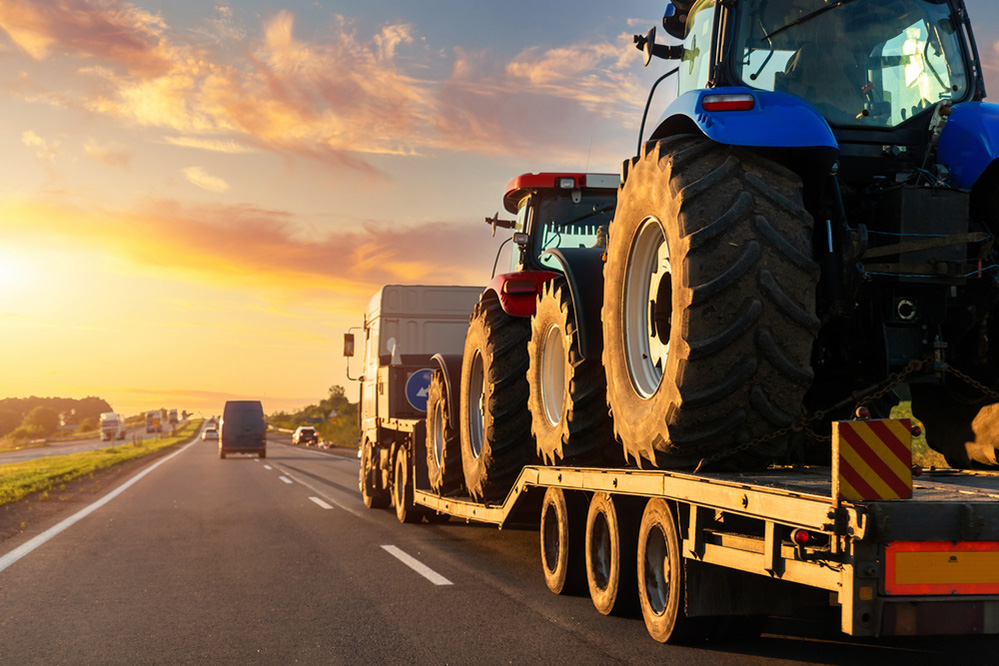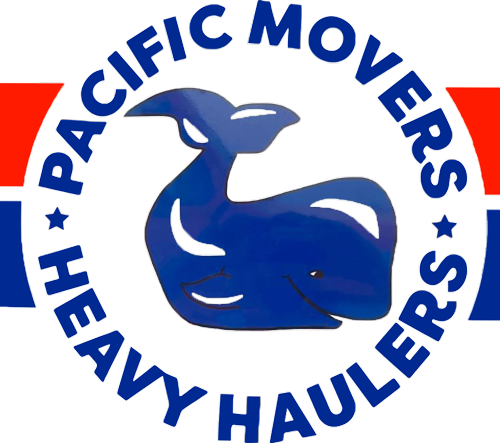Commercial Equipment Transport in Boise, ID
Commercial equipment transport refers to moving large or heavy equipment from one location to another. This can be done via land, air, or water, depending on the type and size of the equipment being transported. There is much to research and check out before getting a company to transport commercial equipment. Associated Pacific Movers, Inc. will go through a list of essential things to know when commercial equipment movers are needed in Boise, ID.
Reasons to Transport Commercial Equipment
There are several reasons why someone might need to transport commercial equipment. Perhaps they are moving their business to a new location and need to transport their machinery. Or they need to ship equipment to a customer or client. Whatever the reason, there are a few things to remember when transporting commercial equipment.

- It is essential to choose the correct mode of transportation. Land transport is typically the most cost-effective option, but it may not be possible if the equipment is too large or heavy. In that case, air or water transport may be necessary.
- It is crucial to ensure that the equipment is adequately packaged and protected for transport. This includes ensuring that it is appropriately secured, does not shift during transit, and causes damage.
- It is vital to choose a reputable and experienced commercial equipment transport company. This will help ensure the equipment arrives at its destination safely and on time.
- Be aware of any legal restrictions or requirements that may apply to the transportation of commercial equipment. These can vary depending on the country or state where the equipment is transported.
- Always get a quote from multiple commercial equipment transport companies before deciding. This will allow you to compare rates and services to find the best option for your needs.
The Different Ways to Haul Commercial Equipment
There are a few different ways to haul commercial equipment, each with its advantages and disadvantages.
-
Towing
Towing is the most common method of transport for small to medium-sized pieces of equipment. It is typically the most affordable option and can be done using a variety of vehicles, from cars to trucks. However, finding a vehicle capable of safely towing large or heavy equipment can be challenging. Towing also requires careful planning and route selection to avoid damaging the equipment or the vehicle.
-
Flatbed Trailers
Flatbed trailers are a popular choice for larger pieces of equipment. They offer several advantages over other methods of transport, such as being able to load and unload equipment quickly and being able to transport substantial and heavy items. However, flatbed trailers can be more expensive than other options and may require special permits for specific equipment items.
-
Double Drop Trailers
Double drop trailers are a type of flatbed trailer that is designed for hauling hefty equipment. They offer the same advantages as regular flatbed trailers but can accommodate much heavier loads. Double drop trailers can be more expensive than other options, but they are typically worth the investment for those who need to transport very large or heavy equipment regularly
-
Step Deck Trailers
Step deck trailers are a type of flatbed trailer that is designed for hauling tall or wide equipment. They offer the same advantages as regular flatbed trailers but can accommodate taller or broader loads. Step deck trailers can be more expensive than other options, but they are typically worth the investment for those needing to transport elevated or comprehensive equipment regularly.
-
When selecting a method of transport for commercial equipment, it is crucial to consider the size, weight, and type of equipment to be transported. Towing is typically the most affordable option but may not be suitable for large or heavy items. Flatbed trailers offer several advantages over other methods of transport but can be more expensive. Double drop trailers and step deck trailers are designed for hauling very large or heavy loads and can be more costly but are typically worth the investment for those who need to transport such items regularly.
Beware of the Different City and State Laws
All parties should know the laws of hauling commercial equipment throughout the cities and states. You can find the best commercial equipment movers Idaho has to offer and follow the Idaho trucking website for all information from the trip’s origin to the destination.
There are also strict federal laws that dictate the size and weight of loads that can transport on US highways. The maximum dimensions for a load are 8.5 feet wide, 13.5 feet tall, and 40 feet long (including the trailer). The maximum weight limit is 80,000 pounds.
To transport a load exceeding these dimensions or weight limits, you must obtain a special permit from the appropriate state or federal agency. When transporting commercial equipment, it is essential to know the city and state laws.
To transport a load exceeding the legal dimensions or weight limit, you must obtain a special permit from the appropriate state or federal agency. Each state has different rules and regulations regarding permits, fees, and other documentation. Stay up to date on the latest city and state laws to ensure compliance.
The Paperwork Needed for Commercial Hauling
There is much paperwork that goes into commercial hauling. The first step is to get a permit from the appropriate state or federal agency. Once you have the permit, you must fill out a Bill of Lading. This document includes information about the load, the route, and the contact information for the shipper and receiver.
The Bill of Lading must be signed by both the shipper and the driver before the load can be transported. Once the load has been delivered, the driver must complete a Delivery Receipt. This document includes information about the equipment that is delivered, the date and time of delivery, and the signature of the person who received the equipment.
Before you begin hauling commercial equipment, be sure to have all of the necessary paperwork in order. This includes a permit, a Bill of Lading, and a Delivery Receipt. By being prepared with the proper documentation, you can avoid delays and ensure a smooth transport process.
Contact us for your Commercial Equipment Transport in Boise, ID
Every business requires reliable results from the company that handles their commercial equipment transportation in Boise, ID. Discover why so many enterprises count on our moving services at Associated Pacific Movers, Inc. Contact us at 208-376-8660 to speak with one of our representatives about saving you money while safely transporting your commercial equipment.

